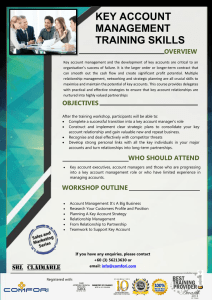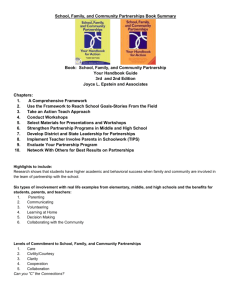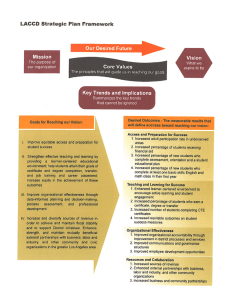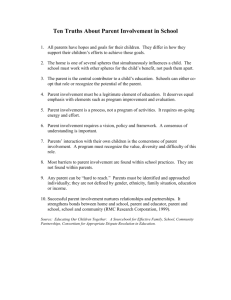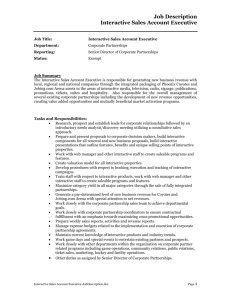Chapter 13
advertisement
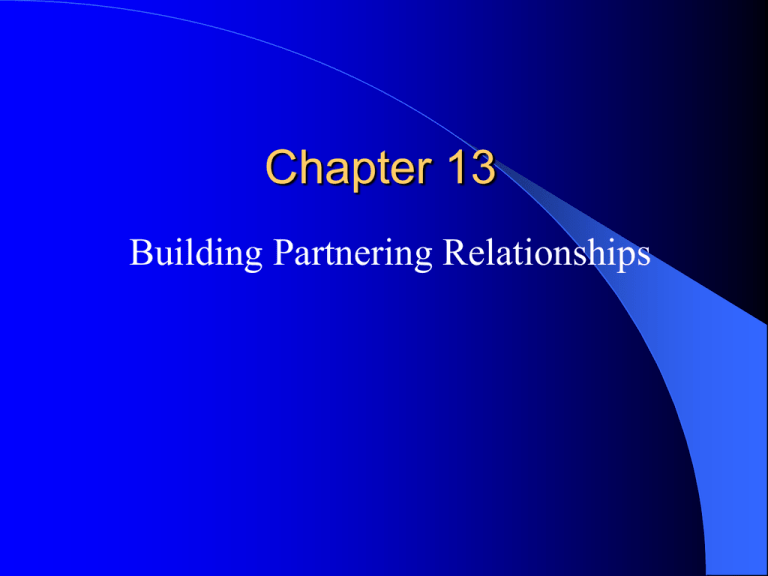
Chapter 13 Building Partnering Relationships The Value Of Customers Maintaining strong relationships with the customer is important (Existing accounts contribute a large portion of sales) Selling to satisfied customers not only costs less than acquiring new customers but also is easier Customers are worth more in terms of revenue than some salespeople recognize CVS – Customer lifetime value – combined total of all future sales (typically discounted back into current dollars). Value of Customers Consultative customer-oriented sales approach – shown to improve customer retention & profitability Another study – finds average company loses 20-50% of its customer base every year, and the rate is increasing! Relationships and Selling Relationship marketing – many definitions For selling, it means creating the type of relationship that best suits a customer’s need Behavioral loyalty – purchasing same product from same vendor over time (habit) Attitudinal loyalty – emotional attachment to a product Market exchanges Solo exchange – one time purchase Example: car trouble out of town Functional relationships – long term relationship characterized by behavioral loyalty – (habit or routine) Partnerships Relational Partnerships – close personal bond involved – know small details can be worked out Strategic Partnerships – both make significant investments to improve profitability Managing Relationships Some companies want a market exchange, some want a functional relationship, and others want a strategic partnership. Size, access & image, & access to innovation help drive partnerships3 Choosing Right Relationships Size – example: Keyser Group & McDonalds – worked for decades -P.348 OR J.C. Penney and Martha Stewart Access and Image – SRI (software company)– can provide access to very specific markets – P. 350 Access to Innovation – Lead users face & resolve needs months/years ahead of others -HEB & (RFID) Phases of Relationship Development Awareness Exploration Expansion Commitment Dissolution Note: Research shows the middle three stages are the most important! Characteristics of Successful Partnerships Mutual trust Dependability Competence Customer Orientation Honesty Likability Open Communication & Common Goals Successful Partnerships Commitment to Mutual Gain Organizational Support – Structure & Culture – Training – Rewards Selling Yourself Vignette Deeper relationship – Student Ambassadors!

